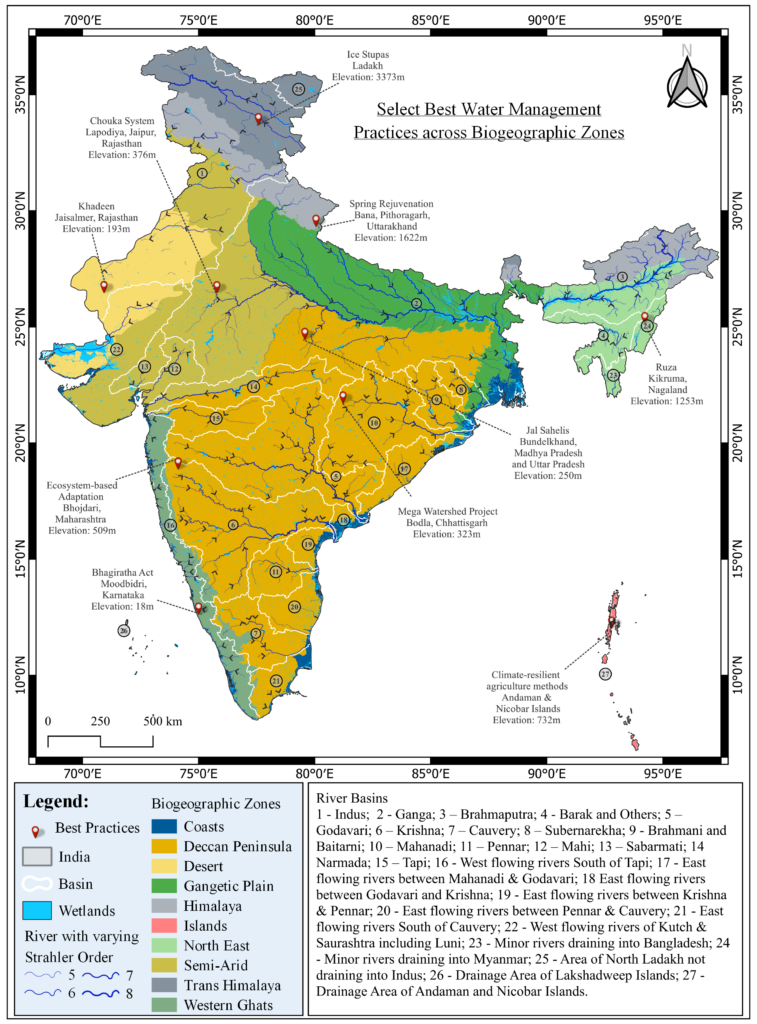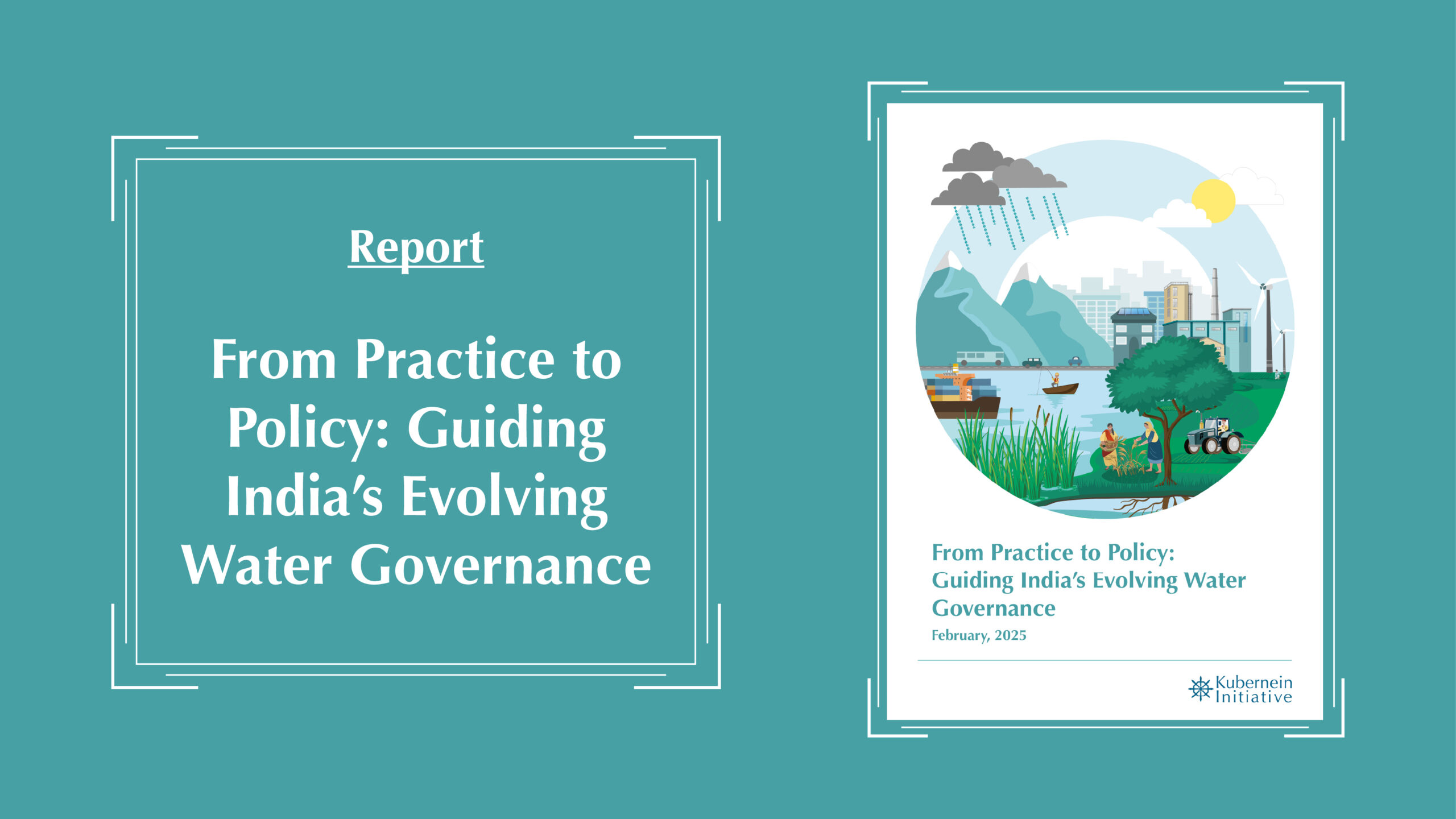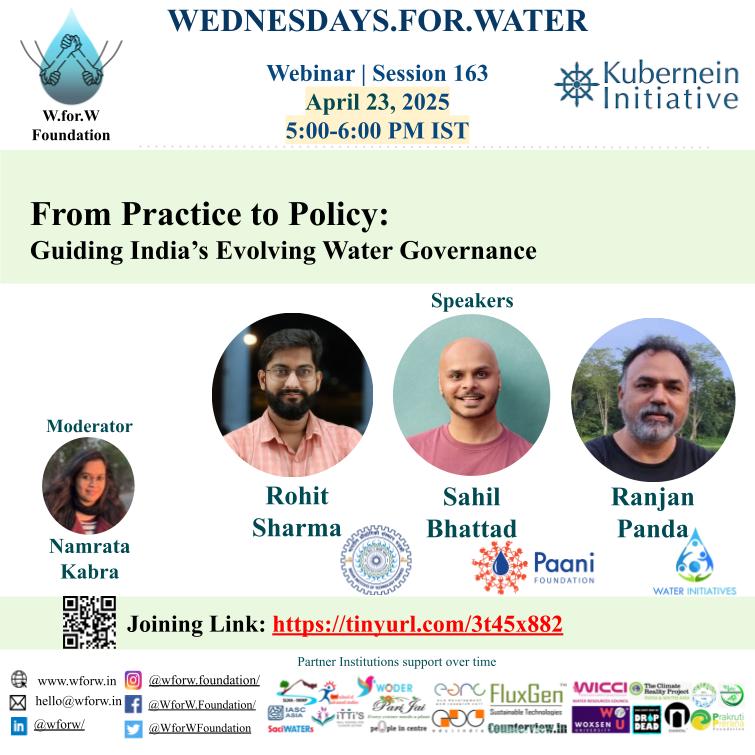
Knowledge Center
Highlighted Events
India’s water governance is at a critical juncture. While numerous laws, policies, and programs exist, they often operate in silos, failing to holistically address key concerns such as gender equity, community livelihoods, food security, climate resilience, and groundwater management. Kubernein Initiative presents a groundbreaking report, From Practice to Policy: Guiding India’s Evolving Water Governance, advocating for a transformative approach to water security by integrating historical and traditional wisdom with modern, biogeography-based best practices.
A Novel Approach to Mapping Water Resources
One of the key contributions of this report is an attempt to draw innovative water maps, which integrate: rivers and river basins, elevation, bio-geographies, and soil features—a perspective that aligns with holistic water governance with natural ecological boundaries rather than administrative boundaries. By recognizing the interconnectedness of ecosystems, climate, and local hydrology, these maps serve as a decision-making tool to identify the most suitable water management practices for different regions.
Showcasing 10 Best Practices Across India’s Biogeographic Zones
India is divided into 10 distinct biogeographic zones, each with its unique ecological characteristics. Through an extensive study of community-led and ecosystem-based approaches, the report presents 10 community-led water conservation projects from these regions, demonstrating how traditional knowledge and modern innovations can work together for context-specific water security solutions:

Each of these case studies reflects geomorphological understanding—including elevation, soil types, and rainfall patterns—and showcases community-driven innovations that offer models for context-specific, water governance for a climate resilient future.
A Three-Pronged Framework for Water Governance Reform
The report advocates for a paradigm shift in water governance through:
- Transitioning to Hydrological Boundaries – Moving away from political-administrative divisions to watershed-based governance for better resource management.
- Governance Based on Bioregionalism – Aligning policies with ecosystem-based governance, ensuring decisions reflect local environmental and social contexts.
- A Rights-Based Approach – Recognizing water as a commons, ensuring community participation, equity, and resilience in decision-making.
Why This Matters
As India faces growing climate risks, water scarcity, and ecological degradation, a water-centric and ecosystem-based approach to governance is essential. By weaving together scientific insights, traditional wisdom, and participatory governance, this report lays the foundation for resilient, community-driven water security solutions.
Water must be at the heart of India’s long-term security strategy. This report offers a clear roadmap for policymakers, researchers, and communities to move from fragmented water management to integrated, bioregional governance—ensuring that both people and ecosystems thrive through time tested best practices.



